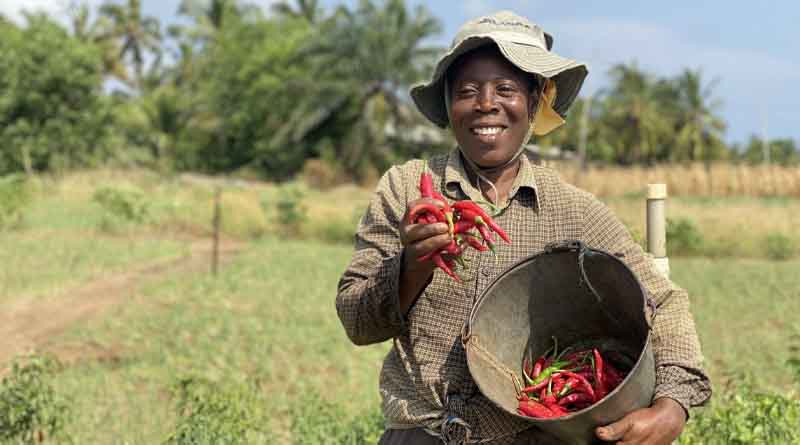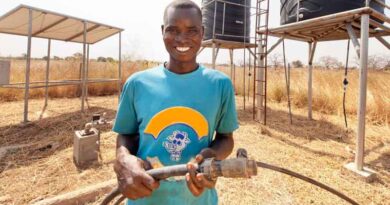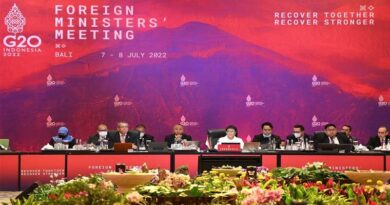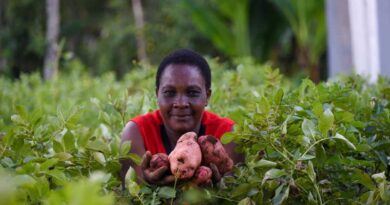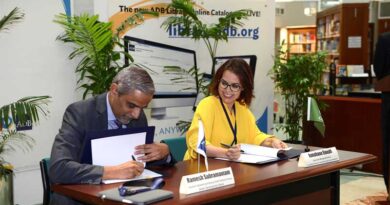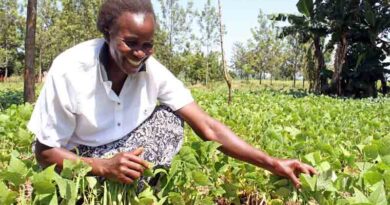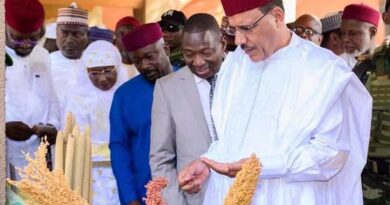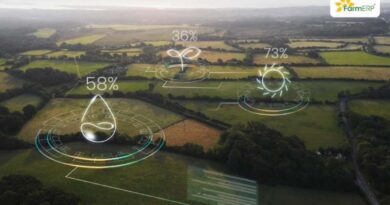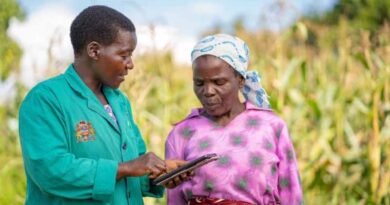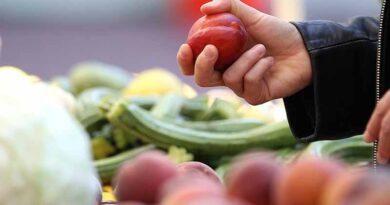Farmers at the Forefront: Utilizing Agricultural Data to Monitor G7 and G20 Pledges
19 May 2023, Asia: New dashboard will draw on CGIAR data and research to track G7/G20 commitments and inform policy for food systems transformation
With the world still reeling from a pandemic, ongoing geopolitical tensions and recent natural disasters have negatively affected progress towards the Sustainable Development Goals (SDGs), leading to growing calls for strengthened collaborative action.
The official think tank of the G7, Think7 (T7), convened in April, hosted by the Asian Development Bank Institute, to develop research-based policy recommendations ahead of the G7 and G20 summits. Recommendations outlined in the T7 Japan communiqué included a proposal for an open-source dashboard, drawing on CGIAR and global data, to inform policy decisions and track G7/G20 commitments.
CGIAR provided input to the T7 Japan Summit, including co-chairing the Science and Digitalisation track and co-authoring policy briefs and statements to guide discussions and negotiations with the national delegates ahead of important G7, and the following G20 meetings. Inputs were requested on global economic and climate issues, and CGIAR proposed food, land and water systems transformation as a pathway to deliver on these topics. The inputs emphasized the potential to further leverage globally coordinated science and inclusive innovation to create sustainable and scalable systems that can solve big issues such as employment, nutrition, climate security, and education.
Amid current environmental, geopolitical, and socioeconomic upheavals, the communiqué proposes fostering cooperation over competition to prioritize growth in areas like climate finance, sustainable infrastructure, and agricultural transition. The conflict in Ukraine, which has highlighted geopolitical fragmentation and diverted developmental assistance from lower-income nations, further underscores the urgency of these issues.
CGIAR System Board Member Alyssa McDonald-Baertl, who co-chaired the task force on Science and Digitalization for a Better Future at T7 Japan, described how bridging G7/G20 efforts can open new and exciting pathways for multilateral collaboration, cross-cutting digital innovation and, especially, bring smallholder needs to the table.
“If we want to solve the big issues like climate change, employment, water and nutrition, we need to enable farmers, fishers and livestock keepers, who are already leapfrogging technologies, to solve these problems early in the innovation cycle. Responsible for 70% of the world’s water, 30% of carbon, and representing almost half the global workforce, those in food, land and water systems are the tipping points who can make the most significant impact,” said McDonald-Baertl.
An important part of CGIAR’s digital transformation has been an increased focus on sourcing data from smallholder farmers to bring innovative solutions to farmers on a global scale. A G7/G20 dashboard infused with “real data from farmers at the first-mile of the value chain, will demonstrate their impact as important agents of change at the forefront of decision-making,” explained McDonald-Baertl.
Another opportunity presented by this approach is to bridge the gaps between innovation and the infrastructures required to implement them. “This dashboard will provide the rapid insight needed to help drive the global policies and investment commitments to open and fair data and the digital infrastructure needed to leverage digital innovation needed to achieve SDGs through systems transformation,” said Brian King, Head of Digital & Data Innovation Accelerator at the Alliance/CGIAR.
T7 have tasked CGIAR and the Linux Foundation to co-design the G7/G20 Dashboard, drawing on global research to facilitate the development of evidence-based policies. Further mechanisms are also proposed for monitoring the progress and efficacy of commitments made under rotating G7 and G20 presidencies, with the aim of enhancing “transparency and accountability against the backdrop of global uncertainty”.
The dashboard will connect to think tank networks, global researchers, and experts in respective policy areas to, ultimately, be updated by a global community of volunteers. Early focus will be on critical systemic areas starting with food, agriculture and nutrition, security, poverty alleviation, energy transition, and education, with issues of sustainable and quality infrastructure also marked to be included.
Evidence drawn from the dashboard could see an increased G7/G20 commitment to:
- Increase investment in public financing of digital public goods such as good quality data, backbone infrastructure, and analytic services;
- Craft policies to help drive down the cost of data and digital access in rural areas, particularly for youth;
- Promote innovative mechanisms of finance, such as green bonds and blended finance that help de-risk investments in climate-smart innovations; and
- Identify public financing gaps to deliver multi-service businesses.
There are challenges, however, to delivering on such ambitious digital products slated for global application and science is only a part of it, explained King. “We need multi stakeholder engagement in the codesign to arrive at the generalizable metrics we know will point to credible and real change on the ground and on a global scale. CGIAR’s global open data infrastructure, and research partner network, positions us as a trusted intermediary to deliver on that intelligence needed to guide such high-level policy investments”.
(For Latest Agriculture News & Updates, follow Krishak Jagat on Google News)

